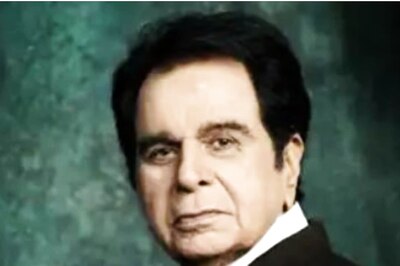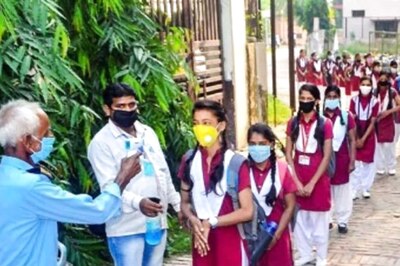
views
Where love has lost its voiceSeptember 15, 2006
To build a truly democratic and plural India, we must collectively fight against laws and policies that abuse human rights and limit fundamental freedoms. This is why we, concerned Indian citizens and people of Indian origin, support the overturning of Section 377 of the Indian Penal Code, a colonial-era law dating to 1861, which punitively criminalises romantic love and private, consensual sexual acts between adults of the same sex.
In independent India, as earlier, this archaic and brutal law has served no good purpose. It has been used to systematically persecute, blackmail, arrest and terrorise sexual minorities. It has spawned public intolerance and abuse, forcing tens of millions of gay and bisexual men and women to live in fear and secrecy, at tragic cost to themselves and their families.
It is especially disgraceful that Section 377 has on several recent occasions been used by homophobic officials to suppress the work of legitimate HIV-prevention groups, leaving gay and bisexual men in India even more defenceless against HIV infection.
Such human rights abuses would be cause for shame anywhere in the modern world, but they are especially so in India, which was founded on a vision of fundamental rights applying equally to all, without discrimination on any grounds. By presumptively treating as criminals those who love people of the same sex, Section 377 violates fundamental human rights, particularly the rights to equality and privacy that are enshrined in our Constitution as well as in the binding international laws that we have embraced, including the International Covenant on Civil and Political Rights.
Let us always remember the indisputable truth expressed in the opening articles of the Universal Declaration of Human Rights that “All persons are born free and equal in dignity and rights... Everyone is entitled to all the rights and freedoms set forth in this Declaration, without distinction of any kind.”
We will move many steps closer to our goal of achieving a just, pluralistic and democratic society by the ending of Section 377, which is currently under challenge before the Delhi High Court. There should be no discrimination in India on the grounds of sexual orientation. In the name of humanity and of our Constitution, this cruel and discriminatory law should be struck down.
Sincerely,
Vikram Seth, Swami Agnivesh, Soli Sorabjee, Aditi Desai, Nitin Desai, Captain Lakshmi Sahgal, Siddharth Dube, MJ Akbar, Subashni Ali, Kanti Bajpai, Kaushik Basu, Shyam Benegal, John Dayal, Barkha Dutt, Amitav Ghosh, Satish Gujral, Syeda Hameed, Sudhir Kakar, Girish Karnad, Saleem Kidwai, Sunil Khilnani, Jhumpa Lahiri, Sonal Mansingh, Shubha Mudgal, Kuldip Nayar, Aruna Royy, Arundhati Roy, Vir Sanghvi, Mrinalini V Sarabhai, Rajdeep Sardesai, NC Saxena, Aparna Sen, Admiral RH Tahiliani (retd), Tarun Tejpal, Siddharth Varadarajan, BG Verghese and 150 others.
Amartya Sen's statement
I have read with much interest and agreement the open letter of Vikram Seth and others on the need to overturn section 377 of the Indian Penal Code. Even though I do not, as a general rule, sign joint letters, I would like, in this case, to add my voice to those of Vikram Seth and his cosignatories. The criminalisation of gay behaviour goes not only against fundamental human rights, as the open letter points out, but it also works sharply against the enhancement of human freedoms in terms of which the progress of human civilisation can be judged.
There is a further consideration to which I would like to draw attention. Gay behaviour is, of course, much more widespread than the cases that are brought to trial. It is some times argued that this indicates that Section 377 does not do as much harm as we, the protesters, tend to think. What has to be borne in mind is that whenever any behaviour is identified as a penalisable crime, it gives the police and other law enforcement officers huge power to harass and victimise some people. The harm done by an unjust law like this can, therefore, be far larger than would be indicated by cases of actual prosecution.
It is surprising that independent India has not yet been able to rescind the colonial era monstrosity in the shape of Section 377, dating from 1861. That, as it happens, was the year in which the American Civil War began, which would ultimately abolish the unfreedom of slavery in America. Today, 145 years later, we surely have urgent reason to abolish in India, with our commitment to democracy and human rights, the unfreedom of arbitrary and unjust criminalisation.
Should Section 377 of the Indian Penal Code that deems homosexuality a criminal act be amended? Express your views



















Comments
0 comment